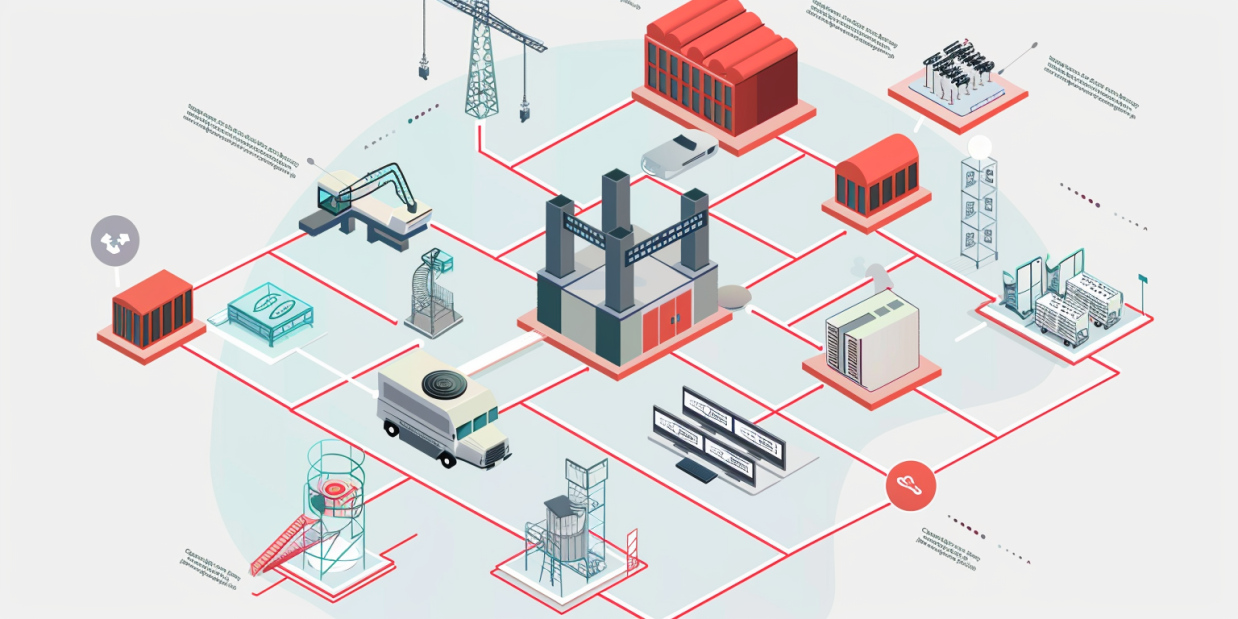Behind the Screens: A Day in the Life of a System Engineer” provides an enlightening tour into the complex yet rewarding world of systems engineering. This blog aims to elucidate the myriad of responsibilities, skills and technical knowledge essential to the role by unraveling the tasks a typical day may entail, from systems design and analysis to troubleshooting and client support. Whether you’re considering a career in this emerging field or merely curious, immerse yourself in the captivating journey that is systems engineering.
Table of Contents
Introduction
Understanding the Imperative of Systems Engineering
Systems Engineering is an interdisciplinary field that institutionalises and shapes the creation and management of complex systems. It is instrumental in ensuring the smooth operation of large scale, intricate systemswithin a multitude of sectors, from telecommunications and manufacturing to software development and aerospace engineering.
The role of a Systems Engineer is expansive. It comprises the understanding of the interactions and synergies between various parts of a system, delivering effective and efficient solutions, and fostering innovative design and adaptation within organisations. These professionals stand at the forefront of managing intricate engineering projects and complex technological systems. They work to optimise performance, manage risk, and align all system elements to achieve a coherent, unified output.
The Vital Role and Skillset of a Systems Engineer
A systems engineer is a catalyst, facilitating communication, translating technical terms between different stakeholder groups, and ensuring alignment towards the common goal of creating quality, efficient systems. This role demands a broad array of hard and soft skills, with an emphasis on problem-solving, technical acumen, project management proficiency, and remarkable communication abilities.
The day-to-day responsibilities of a Systems Engineer can be diverse and challenging. They could be orchestrating a team working on intricate system design, performing a systematic breakdown of a complex problem into manageable parts for Systems Analysis, configuring hardware and software requirements, or delivering critical reporting and documentation.
A Promising Career Path in an Ever-Evolving Landscape
The career path in Systems Engineering offers immense prospects. It combines the thrill of problem-solving with the fulfilment of contributing to the broader organisational goals, creating a dynamic and rewarding job outlook. With the rapid advances in technology, the demand for skilled systems engineers is escalating, making it an alluring professional choice for those inclined towards technical intrigue and impactful solutions.
Whether you are a freshly graduated engineer, a seasoned IT professional, or someone contemplating a career shift, a stint in systems engineering could be a rewarding journey full of challenges and learnings. With consistent hard work, up-to-date skills, and relentless curiosity, this role can pave the way for ascending professional growth.
What is a Systems Engineer?
Deciphering the Role of a Systems Engineer
In the world of technical project management, few roles carry the breadth and depth of responsibility comparable to a Systems Engineer. Their scope of work spans across the conception, design, implementation and maintenance of complex systems. They are responsible for ensuring each subsystem works harmoniously within the greater system, continuously functioning towards achieving the organisational goal.
Systems Engineers ensures the smooth operation of all technical aspects, from hardware and software to systems processes and data management. They are proficient troubleshooters, adept at deciphering and resolving any system glitches that may occur. Their craft goes beyond merely addressing technical issues; they also equip themselves with substantial communication skills to articulate intricate matters with clients and different teams effectively.
Non-Negotiable Skills for a Systems Engineer
Aptitude for technical project management, acute troubleshooting skills, and impeccable attention to detail form the backbone of a competent Systems Engineer’s proficiency. They are deeply versed in contemporary software and hardware systems, programming languages, tools and methodologies. Moreover, they possess a strong understanding of business requirements and the prowess to deliver optimal solutions.
Equally as significant as their hard skills are the soft skills they employ. Systems Engineers are typically problem solvers, thought leaders, and excellent communicators. They inspire, drive change, and above all, they continually learn and adapt. Their ability to digest complex information and translate it into layman’s terms is critical to ensuring the smooth and effective flow of projects within an organisation.
Gearing Up for the Future
Systems Engineers are crucial to the seamless operation of today’s ever-complex organisational technology structures. Their demand in the marketplace is slated to rise consistently, making it a compelling and secure career option. To anyone energised by the prospect of being at the forefront of technological transformation and affecting organisational growth, stepping into the world of Systems Engineering might just be the right path forward.
A Day in the Life of a Systems Engineer
Systems Analysis
The morning often starts with comprehensive Systems Analysis. As a Systems Engineer, you’ll tackle complex problems, breaking them down into manageable parts and identifying potential improvements. The process involves thorough studies to understand a system’s operation and performance deficiencies, resulting in recommendations that consequently drive the design or improvement of new systems.
Contemplating the busyness of a Systems Engineer's typical day, one might say these professionals run on innovation, problem-solving, and...coffee! When tackling challenging tasks, a good cup of joe often becomes a trusty sidekick. Consider investing in a quality coffee machine, like the ones listed on this guide at TenCoffees. After all, the right cup can be a critical player in a Systems Engineer's toolkit!
Systems Design
Armed with analytical information, you’ll then delve into Systems Design, creating blueprints that satisfy the identified system requirements. This stage includes writing functional requirements and specifications, developing system architecture, and planning data models as necessary. It’s a meticulous, detail-oriented process requiring technical expertise and strategic foresight.
Implementation and Integration
Once the system design is complete, your focus will shift towards Implementation and Integration. This stage involves rolling out the new system and efficiently integrating it with existing systems. It requires you to execute detailed plans efficiently, ensuring the new system functions correctly while minimally disrupting routine organisational activities.
Testing and Validation
Your afternoon can be consumed by Testing and Validation processes, ensuring the designed system meets the established functional and performance criteria. This crucial responsibility involves creating test scenarios, discovering and reporting defects, and working with development teams to rectify issues. Above all, validation confirms that the system meets the requirements as intended from the outset.
Operation and Maintenance
The latter part of the day is typically designated for the ongoing Operation and Maintenance of systems. As a Systems Engineer, you’ll conduct regular checks to ensure the systems are functioning optimally. Additionally, you’ll handle any necessary maintenance work, perform updates or implement enhancements as needed. This phase involves client communication and support, ensuring their needs align with system performance.
A Systems Engineer’s Not-so-typical Day
Embark on a rollicking ride through the workday of a Systems Engineer in this exciting timetable – from the early morning syntax contemplation to the end-of-day bug-fixing showdown. Unearthing professional interactions and unscripted camaraderie, this table paints a vivid image of the hustle and the enriching teamwork beneath the sleek facade of systems engineering. The journey reminds us that despite the monumental challenges encountered, there’s always room for a bit of light-hearted humour and peer connection!
| Time | Activities | Interaction with the Team |
|---|---|---|
| 9:00 AM – 10:00 AM | Systems Analysis: Bright-eyed and bushy-tailed, starting the day by cracking down on some systems analysis.Round one coffee. | Casual greeting with team, discuss overnight system updates, ponder life’s mysteries – or just the system syntax errors. |
| 10:00 AM – 11:30 AM | Systems Design: Riding high on that caffeine kick, diving headfirst into some serious system design. Round two coffee! | Collaborate on design ideas, occasionally engage in enlightening debates involving the time-tested tabs vs spaces argument. |
| 11:30 AM – 1:00 PM | Implementation and Integration: Pre-lunch power hour! Translate design to reality via skilful implementation, and ensure it integrates nicely with existing systems. | Checking in with teams, hunting for implementation help, sharing server-side cooking recipes. |
| 1:00 PM – 2:00 PM | Lunch: Because even Systems Engineers need to refuel. | By the virtual water cooler: Candid conversations, team rapport, guess-the-nerd-joke punchlines. |
| 2:00 PM – 3:30 PM | Testing and Validation: Post-lunch slump? Not here, it’s time to ensure the system can walk the talk! Round three coffee! | Update team members, get debugging assistance, collectively bemoan pesky error messages. |
| 3:30 PM – 5:00 PM | Operation and Maintenance: Towards day’s end, ensure existing systems keep humming along happily. | Round-off communication, deliver updates, take part in the unofficial competition – “who scored the most bug fixes”? |
Detailed Tasks and Responsibilities
Working with Technical Teams
As part of a multifaceted role, Systems Engineers often find themselves collaborating with various technical teams. Working amidst a spectrum of professionals – including software developers, data analysts, IT support personnel, and project managers – they strive to coordinate the execution of complex technical projects seamlessly. This level of synchronised cooperation demands expert communication and leadership skills, ensuring everyone is aligned and working towards specific project goals.
Troubleshooting and Problem Solving
Central to the role is the constant requirement for Troubleshooting and Problem Solving. Providing immediate technical response to system anomalies, Systems Engineers perform exhaustive analyses to diagnose the root cause and implement comprehensive solutions. This realm of their responsibilities encourages a proactive outlook, with preventative measures being implemented to mitigate the occurrence of repetitive issues.
Reporting and Documentation
Systems Engineers also shoulder the significant responsibility of Reporting and Documentation. Detailed reports depicting system performance, maintenance schedules, and troubleshooting guides are routinely generated and maintained. These documents are not just records; they are integral resources utilised by other members of the technical team, management, and sometimes, clients.
Technical Project Management
Managing technical projects is another facet of a Systems Engineer’s role. They are tasked with overseeing project timelines, coordinating with numerous technical teams, aligning project scope with business needs, and delivering within budget constraints. It requires proficient management skills, keen foresight, and the ability to handle pressure effectively.
Client Communication and Support
Often, Systems Engineers interact directly with clients, acting as the technical liaison bridging the gap between complex system infrastructure and client needs. In addition to catering to their assistance needs, these professionals also educate clients about system functionality, updates, and best practices. Effectively balancing a passion for technology and superior customer service is key to succeeding in this role.
Systems Engineers often have to manage vast amounts of information. They're like the conductors of an orchestra, ensuring each instrumentalist plays in perfect unison, the result being the harmonious melody representing a well-functioning system. From design and deployment to troubleshooting and client support, the role is as diverse as it gets. Much like a skilled conductor, a Systems Engineer turns cacophony into symphony every day!
Technical Knowledge and Skills
Mastering Software and Tools
A Systems Engineer should be well-versed in various software and tools responsible for the overall system design, maintenance, and troubleshooting. These may include computer-aided design software, analytical and scientific software, and project management software, to name a few. Familiarity with popular programming languages, databases, and data modelling is also desired given the evolving technological landscape.
Certification and Training
While a degree in Systems Engineering, Computer Science, or a related field forms the foundation, additional certifications can significantly enhance your credibility and job prospects. A widely recognised certification that’s worth considering is the Certified Systems Engineering Professional (CSEP) from the International Council on Systems Engineering (INCOSE). This globally acknowledged certification benchmarks your skills and expertise in systems engineering against internationally accepted standards.
Following the course and completing the certification can provide a substantial boost in understanding the breadth of technical knowledge required in the role of a Systems Engineer. You can find more details and how to obtain this certification here.
Continuous Learning
Given the rapid advancement of technology, continuous learning is a must for Systems Engineers. Staying up-to-date with evolving technologies, new software introductions, project management methodologies, and emergent industry standards is a significant part of this role. Regular training, attending webinars and conferences, and habitually reading pertinent literature can aid ongoing professional development.
Concluding Remarks
Systems Engineering, with its prolific scope and burgeoning demand, embodies a profession which is deeply intertwined with technological evolution. As a Systems Engineer, you will have the opportunity to bridge gaps, solve problems, and essentially orchestrate the seamless functionality of the intricate technological tapestry within an organisation. Choosing this path signifies embarking on a journey relentless in its innovation and rewarding in its impact.
For anyone considering this career but still on the fence, this insightful article explores the nuances of why systems engineering may indeed be an excellent career choice. Should you decide to undertake this journey, or if you’re prepping for an interview in this field, here are some thought-provoking questions to ask your interviewers, giving you a dynamic perspective into the role’s intricacies.
Beyond the realm of mere job functionality, Systems Engineering as a profession beckons those endlessly curious, dedicated problem solvers, and committed lifelong learners. If you resonate with these traits and envisage yourself at the forefront of technological transformation, then perhaps, the stirring world of Systems Engineering awaits your prowess.







